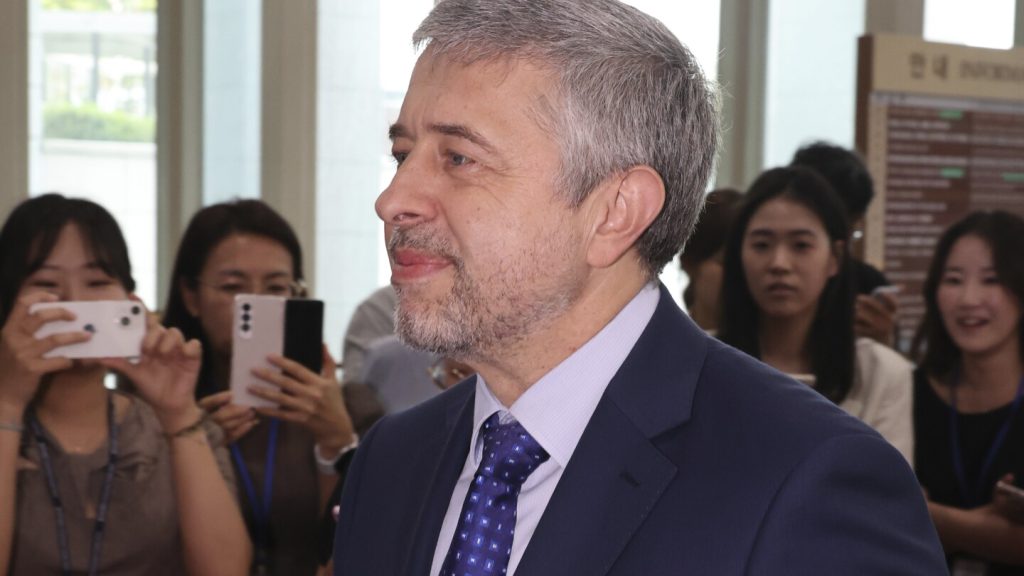South Korea recently summoned the Russian ambassador to protest the new defense pact between Russia and North Korea. This comes amid rising tensions at the border with North Korean troops making brief incursions and vague threats being issued. South Korean Vice Foreign Minister Kim Hong Kyun expressed concerns about Moscow’s alleged military cooperation with Pyongyang, warning of consequences for the security of South Korea. The Russian ambassador defended the agreement, stating that any attempts to threaten or blackmail Russia were unacceptable. The United Nations Secretary-General also weighed in, reminding all countries to abide by sanctions that prohibit providing material for North Korea’s nuclear or ballistic missile programs.
The tensions at the border escalated following South Korean activists flying balloons carrying anti-Pyongyang propaganda leaflets across the border. These campaigns have reignited Cold War-style psychological warfare between the two Koreas. North Korean leader Kim Jong Un’s sister, Kim Yo Jong, issued a vague threat of retaliation against the activists, warning of consequences for their actions. In response to previous leafletting, North Korea had launched balloons that caused property damage in South Korea. The South Korean military has resumed anti-North Korea propaganda broadcasts, leading to further warnings from Kim Yo Jong about creating a dangerous situation.
The current situation between North and South Korea is at its highest level of tension in years, as Kim Jong Un escalates nuclear weapons development and seeks support from Russia in a standoff against the U.S.-led West. South Korea, supported by the United States, is considering increasing support for Ukraine in response to the pact between Russia and North Korea. However, South Korea has maintained a policy of not supplying weapons to countries engaged in active conflict. Russian President Putin has condemned the idea of supplying weapons to Ukraine, reassuring South Korea that the agreement is not aimed at aggression towards Pyongyang.
South Korea’s Foreign Ministry has coordinated with the United States and Japan to address the threat posed by the defense pact between Russia and North Korea. All parties agreed that the agreement presents a serious risk to peace and stability in the region and pledged to strengthen trilateral coordination to handle the challenges posed by the alignment between Moscow and Pyongyang. North Korea is sensitive to criticism of Kim Jong Un’s rule and efforts to reach its people with foreign media. Previous incidents involving loudspeaker broadcasts led to exchanges of fire across the border between North and South Korea, highlighting the volatility of the situation.
Recent border incidents, including North Korean soldiers crossing the demarcation line and engaging in construction work, have raised concerns about fortification efforts on the North Korean side of the border. South Korea’s military believes the intrusions were unintentional as the North Korean soldiers retreated after warning shots were fired. North Korea’s deployment of large numbers of soldiers to build barriers and plant mines along the border has raised suspicions about preventing defections to the South. The ongoing tensions and incidents at the border underscore the fragility of the situation and the potential for further escalation between the two Koreas.


